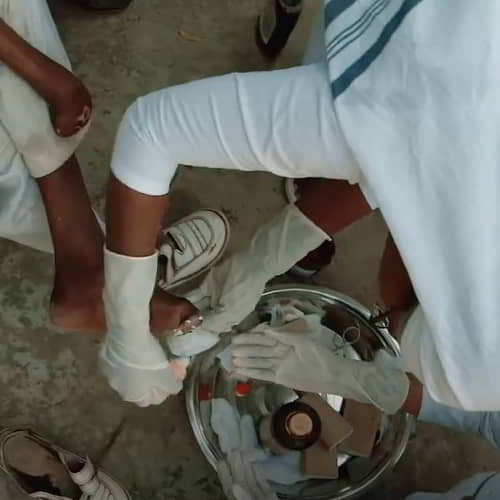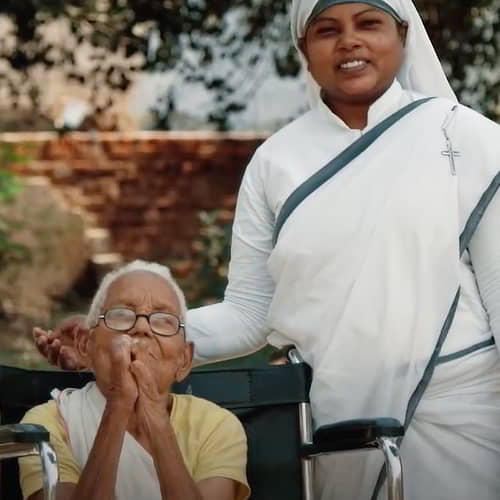Local Missionaries in Asia: The Sisters of Compassion’s Unseen Impact of Hope and Transformation
In the lands where the sun rises over the vast landscapes of Asia, leading lives of quiet despair are many people of unmeasured impact who are simply overlooked and neglected. However, among the ignored and neglected, a group of devoted women called Sisters of Compassion are effecting real change in measurable ways. Bearing the burdens of those with profound needs, these local missionaries within Asia and Africa have been raised up and trained by GFA World to offer practical compassion―hand care, touch care and extending the respect and attention that every individual deserves.
Geeta is a Sister of Compassion in a leper colony where 30 families, consisting of a minimum of 10 persons in each family, reside. Many members of each family cannot work due to their disease, and some are permanently disabled. Providing them with much-needed personal care, the Sisters of Compassion will trim their hair and give them baths, cleaning the scabies and foul-smelling wounds that the colony residents cannot tend to on their own. In addition, the Sisters of Compassion massage their muscles and stimulate circulation, even wash the clothes of those who struggle with this chore because for instance, leprosy has taken their fingers. While in the colony, the Sisters of Compassion pray for the residents and offer words of hope and encouragement. [1]
Geeta states, “We do all this because of the love of God.” They take His love deep into these communities, ministering with practical compassion, reaching into places other helpers do not go. The Sisters of Compassion are not an outside source but considered loving family by leprosy residents. They fully understand the culture and customs of Asia as well as the language and dialect of those they share a lifestyle with. They wear their simple, handspun uniform, a white sari, mirroring the attire of the lowest servant of Asia. Each touch and each smile they extend injects much-needed hope and attention into these often-forlorn communities. The white sari states, “I am here to serve you. I see your worth.”[2]
Click here, to read more about this article.
Click here, to read more blogs in Gospel for Asia.Net


Comments
Post a Comment